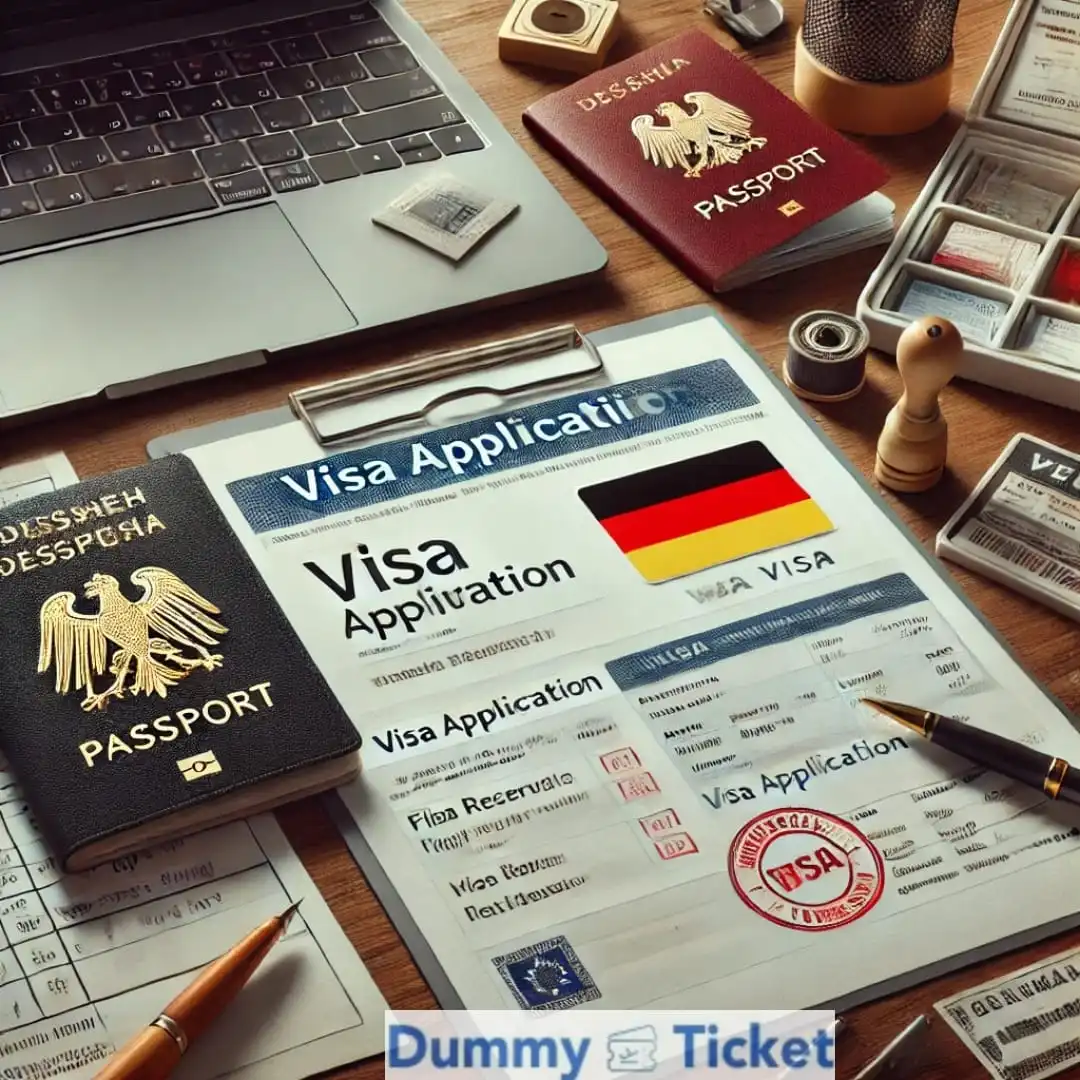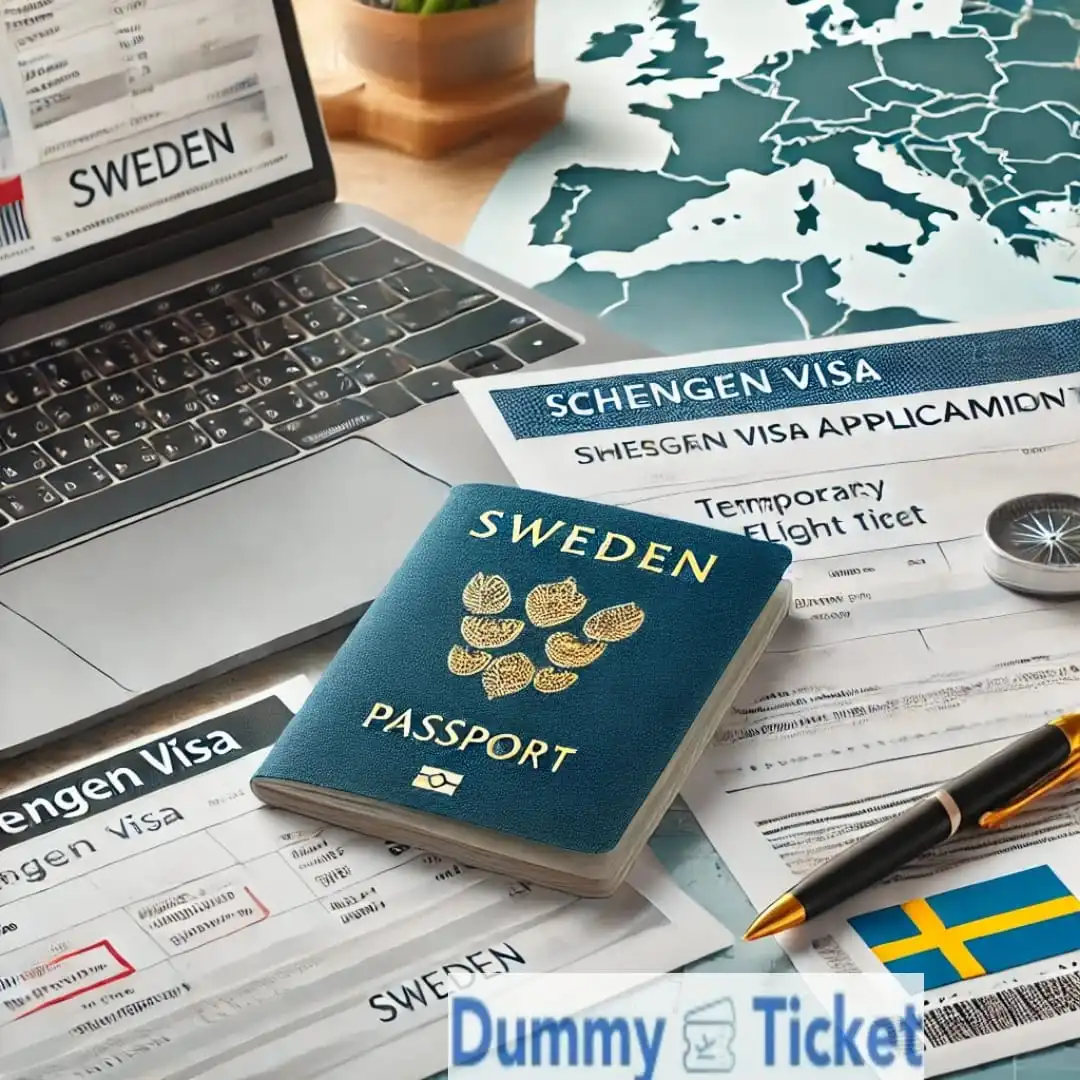Schengen Visa for Germany
A Schengen visa for Germany allows the holder to enter Germany and other countries in the Schengen Area for up to 90 days within a 180-day period for specific purposes such as tourism, work, or visiting friends and family. Germany is one of the most sought-after countries for visas due to its beauty, strong economy, and available study and work opportunities.
Types of Schengen Visas for Germany
The Schengen visa for Germany can vary depending on the purpose of travel, including the following types:
- Tourist for Germany Visa: Allows you to visit Germany for leisure and tourism purposes.
- Work Visa: Requires an invitation or a work contract from an entity in Germany and allows you to work for a specified period.
- Study Visa: Provides an opportunity for short-term study and usually requires an acceptance letter from a German educational institution.
- Family and Friends Visit Visa: Requires an invitation letter from someone residing in Germany.
- Medical Treatment Visa: Granted to individuals who need to receive medical treatment in Germany.
- Business Visa: Aimed at travelers for business purposes, such as attending conferences and meetings.
Requirements for Obtaining a Schengen Visa for Germany
To apply for a Schengen visa for Germany, the following documents and requirements must be met:
- Visa Application Form: The form must be filled out electronically or on paper and signed.
- Passport: Must be valid for at least three months after the expected stay.
- Passport Photos: Recent photos with a white background that meet Schengen standards.
- Travel Health Insurance: Must cover medical expenses with a minimum amount of €30,000 and include all Schengen countries.
- Dummy Flight Ticket : You do not need to purchase the ticket fully, but you can submit a flight reservation to prove your travel plans.
- Proof of Accommodation: A hotel reservation or an invitation from someone residing in Germany.
- Proof of Financial Means: Such as a bank statement for the last three months, demonstrating the ability to cover living expenses.
- Proof of Social and Professional Ties: Such as a letter from your employer or proof of business ownership.
Steps for Applying for a Schengen Visa for Germany
- Determine the Visa Type: Choose the appropriate visa type based on the purpose of travel.
- Collect Documents: Ensure that all required documents are ready.
- Schedule an Appointment at the Embassy: Submit your application at the German embassy or consulate in your country.
- Pay Visa Fees: The visa fee is around €80 for adults, with different fees for children and special cases.
- Personal Interview: A personal interview may be required at the embassy to submit documents and answer questions related to the visit.
- Wait for the Decision: The processing time is usually between 15 to 30 working days, depending on the type of application and the number of applicants.
Reasons for Schengen Visa Refusal for Germany
In some cases, the visa application may be rejected for the following reasons:
- Incomplete Documentation: Failure to submit all required documents.
- Failure to Prove Intention to Return: If there is doubt about returning after the visa period ends.
- Poor Travel Record: Previous visa refusals can negatively affect the application.
- Insufficient Financial Resources: If there is no proof of financial ability to cover travel costs.
- Inadequate Travel Insurance: If the health insurance provided does not meet Schengen standards.
Tips for Obtaining a Schengen Visa for Germany
- Proper Preparation of Documents: Make sure to submit all documents in a clear order with correct information.
- Respect Deadlines: Apply well in advance of your travel date to simplify the process.
- Check Insurance Requirements: Choose an insurance company that covers all Schengen countries in accordance with the standards.
- Ensure the Application is Complete: Any missing information could negatively affect the decision.
A Work Visa for Germany provides applicants the opportunity to join the strong German labor market. This visa targets professional specialists, skilled workers, and individuals with high expertise in their fields, granting them the opportunity to work legally in Germany for a period ranging from six months to several years, depending on the type of visa and required conditions.
Types of Work Visas for Germany
There are several types of work visas for Germany, depending on the purpose of travel and the duration of stay. The most common types include:
- General Work Visa: Targets qualified individuals with diverse professional and practical experiences. It requires an official job offer from a German company.
- EU Blue Card: Granted to highly skilled professionals such as engineers, doctors, and developers. It requires a job offer with a minimum annual salary as specified by law.
- Job Seeker Visa: Allows qualified individuals to come to Germany for up to six months to search for a job. Applicants do not need a job offer beforehand but must prove their financial ability to cover living expenses during the job search.
- Trainee Visa: Designed for individuals who wish to complete practical training or an educational program in Germany. It is a temporary visa that can be renewed.
Basic Requirements for a Work Visa to Germany
To obtain a work visa for Germany, certain requirements must be met, which vary depending on the type of visa. These include:
- Qualifications and Work Experience:
The applicant must have a recognized academic qualification or sufficient experience in their field.
The qualification must meet the standards of German vocational training. - Employment Contract or Job Offer:
A formal employment contract or job offer from a German employer is required.
The offer must include job details, salary, and working hours. - Proof of Financial Means:
If applying for a Job Seeker Visa, the applicant must provide proof of financial ability to cover living expenses during their stay. - Health Insurance:
Health insurance that covers treatment in Germany during the entire stay must be provided, either through the employer or privately. - German Language Skills:
A certain level of proficiency in the German language may be required depending on the type of work. Some jobs require a good level of German. - Clean Criminal Record:
A certificate of no criminal record must be submitted as part of the basic requirements.
Steps for Applying for a Work Visa to Germany
- Prepare Required Documents:
Collect all necessary documents, including passport, CV, academic qualifications, work experience certificates, and the job offer. - Schedule an Appointment at the German Embassy:
Applying for the visa requires scheduling an appointment at the German embassy or consulate near your place of residence. - Fill Out and Submit the Application Form:
The work visa application form must be filled out and submitted along with all the required documents during the interview at the embassy. - Personal Interview:
A personal interview will be conducted at the embassy, where you will submit the documents and answer questions related to your work and stay. - Pay the Visa Fee:
The visa fee is approximately €75, though this can vary depending on the type of visa and the applicant's age. - Wait for the Visa Decision:
The processing time for a work visa is around 1-3 months. During this period, all submitted documents will be reviewed.
Tips for Successfully Obtaining a Work Visa to Germany
1. Apply Early: Applying early gives you time to address any missing documents or requirements before your planned travel date.
- Ensure All Conditions are Met: Make sure all necessary documents are provided, and qualifications match the requirements to avoid delays or rejections.
- Improve German Language Skills: Gaining proficiency in German can increase your chances of getting the visa and make communication with employers easier.
- Use Reliable Agencies: If possible, seek assistance from accredited immigration offices to submit your application professionally.
Reasons for Rejection of a Work Visa to Germany
Even if all conditions are met, some applications may be rejected for various reasons, including:
- Incomplete or Incorrect Documents: Missing or incorrect documents, or errors in the application form, can lead to rejection.
- Criminal Record: A criminal record may lead to visa denial.
- Insufficient Qualifications: Not meeting the required professional or academic qualifications for the job.
- Failure to Prove Financial Ability: Not providing proof of financial means to cover living expenses can lead to rejection.
- Unclear Purpose of Travel: If the purpose of the stay is not clear, it may negatively affect the decision.
A work visa to Germany offers incredible opportunities for professionals to join the German labor market and benefit from a stable and diverse work environment. It is advisable to prepare thoroughly and submit the application carefully, ensuring all requirements are met.
Dummy flight ticket as Part of the Work Visa Application
A Dummy flight ticket is a key part of the requirements for obtaining a work visa to Germany. It is used as proof of the applicant’s intent to travel and demonstrates a clear travel plan. Embassies and consulates often require a provisional Dummy flight ticket as part of the visa application, without needing to purchase the ticket in full beforehand, thus avoiding financial loss in case the visa is denied.
Importance of Dummy Flight Ticket in the Work Visa Application
- Proof of the travel plan: The Dummy flight ticket helps clarify the date of your arrival and departure from Germany, which makes it easier for the concerned authorities to determine the length of stay and adhere to it. Therefore, a Dummy flight ticket is the ideal solution to avoid losing significant costs.
- Demonstrating Seriousness of the Application: By providing a flight reservation, you show the embassy or consulate that you have seriously planned your trip and intend to return to your home country after the specified stay.
- Avoiding Unnecessary Costs: A Dummy flight ticket allows you to provide an official document without purchasing the full ticket, helping you avoid wasting money in case the visa is rejected.
- Compliance with embassy requirements: Embassies usually require a clear travel plan that includes arrival and departure dates, and temporary flight reservation is one way to meet this requirement.
Tips for Obtaining a Suitable Dummy flight ticket
- Choose Flexible Dates: Pick dates that align with the potential duration of the visa to avoid delays in the processing of the application.
- Submit the Reservation Document: Ensure the document includes all necessary details such as your name and flight dates.
- Check the Validity of the Reservation: The reservation should be valid throughout the application period to ensure you are submitting correct documents.
By following these steps, you can meet the embassy’s requirements at minimal cost and without financial risk, enhancing your chances of successfully obtaining a work visa to Germany.




